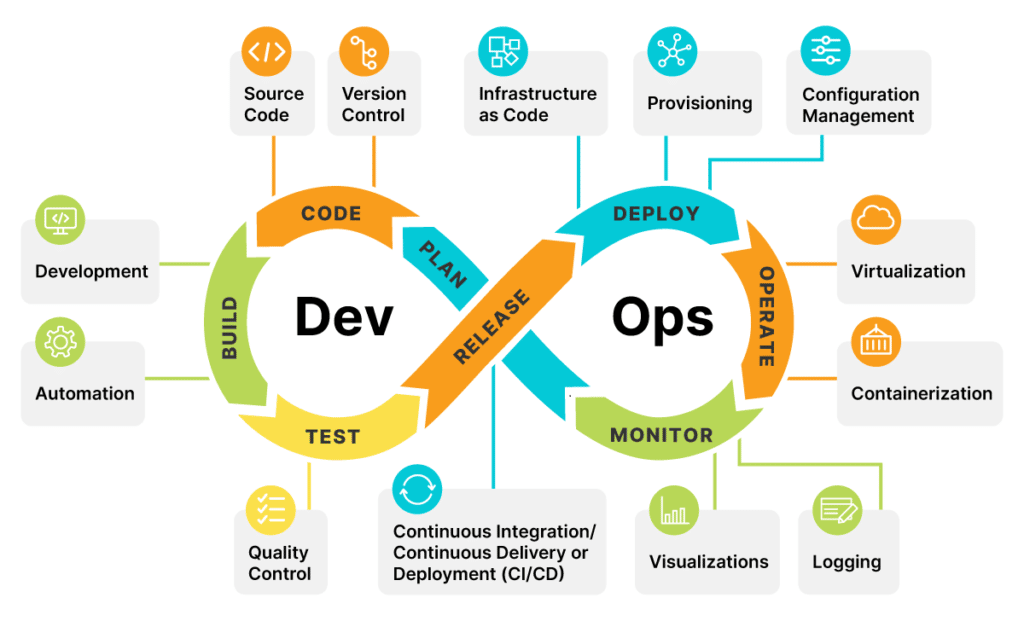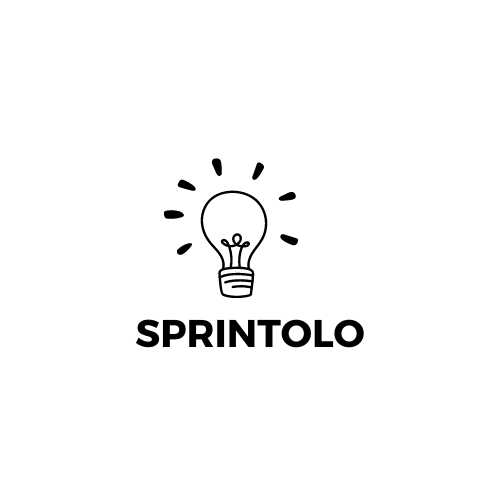DevOps roadmap 2024:- Being the darling of modern software development, and the need for streamlined development and operations processes in today’s fast-paced, tech-driven world has catapulted DevOps to the very front of most discussions. From being an old seasoned developer or an operations professional trying to embrace automation, learning DevOps is an enriching journey, but how do you start this journey? And what’s on the roadmap? This blog dissects the vital steps in becoming proficient in DevOps.

1. Know the Fundamentals of DevOps
DevOps roadmap 2024:- The philosophy of DevOps needs to be understood before the tool and techniques. In a way, DevOps can be said to be a culture and practice wherein collaboration among development and operational teams takes place. The goal is to develop high-quality software very quickly in an efficient manner in the presence of process automation and effective communication with continuous improvement practices.
Lessons to Be Learnt Key Concepts
– Agile and Lean practices
CI/CD (continuous integration and continuous delivery/deployment).
– Infrastructure as Code (IaC)
– Monitoring and Feedback Loops
Then you understand the philosophy behind the tools and practices you’re going to master through a handful of basic concepts.
2. Acquire a Programming Language
A DevOps professional must generally possess programming skills in terms of writing scripts, automation of processes, and infrastructure as code. Popular though it is for its simplicity and versatility, there are other languages like Ruby, Go, or Bash that may also prove valuable.
Where to Start:
DevOps roadmap 2024:- Learn the basic syntax of Python, modules, and libraries specifically pertinent to automation.
Familiarize yourself with Bash scripting as needed to perform server administration tasks.
Discuss Git for version control: it’s an essential tool for any DevOps workflow.
3. Understand About Linux and Networking
DevOps roadmap 2024:- Most DevOps tools operate on Linux, so developing a strong command of Linux operations and networking fundamentals is essential.
The knowledge of networking helps in configuring the system, understanding DNS, firewalls, load balancers, and troubleshooting connectivity issues.
Topics to Discuss:
Linux Shell and Command Line Tools
– File systems, permissions, and processes
4. Burrowing into Version Control Systems
At its heart, lies version control systems, or VCS, and the de facto leading such system deployed today is Git. Mastery of Git is no luxury but a prerequisite to success.
Git Essentials:
To know how to clone, branch, commit, and merge.
This enables communication with Git repositories hosted on GitHub, GitLab, or Bitbucket among others.
5. Know the CI/CD Pipelines
DevOps uses one of its very cornerstones- CI/CD. Continuous Integration manages the property of automatically testing the code changes, whereas Continuous Deployment automatically deploys the release.
What to Learn:
Tools like: Github, Jenkins, CircleCI, GitLab CI/CD
These include creating CI/CD pipelines to automate testing, building, and deployment.
Some of the best practices for managing pipeline failures and debugging:
6. Learn configuration management
Configuration management tools provision and configure servers and applications inside the data centre.
Recommended Tools:
-Ansible: Famous for simplicity and agentless architecture
– Puppet or Chef: Well-suited to manage a bigger environment
– HashiCorp’s Terraform: Infrastructure as Code for the Cloud
7. Acquire Skills in Containerization and Orchestration
Containers have revolutionized software deployment by making applications portable across environments. Learning containerization and orchestration is crucial.
Key Skills:
Docker Develop, manage and run containers
Kubernetes allows running containerized applications in clusters
8. Leverage Cloud Computing
Most modern applications are deployed on cloud-based platforms, and DevOps workflows are, therefore, closely integrated with cloud services.
Leading Cloud Platforms Worth Exploring:
Includes:
– Amazon Web Services (AWS)
– Microsoft Azure
– Google Cloud Platform (GCP)
Begin by understanding how the basics of cloud services work: virtual machines, storage, and networking. Then, proceed to DevOps-specific services AWS calls CodePipeline, what Azure calls DevOps, and what Google Cloud calls Build.
9. Monitoring and Logging
With great effectiveness, DevOps requires proper systems monitoring and logging to provide sufficient health and performance.
Tools to Explore:
– Monitoring: Prometheus, Grafana, Datadog
Logging Tools: Elasticsearch, Logstash, Kibana Stack and Splunk
Understand how to set up alerts, visualise data and troubleshoot effectively.
10. Develop a learning attitude and work on projects
Learning DevOps is best done by doing. Start with small, personal projects, or contributions to open-source initiatives and then gradually move through end-to-end workflows involving source code management, CI/CD pipelines, and container orchestration while monitoring everything in place.
Proposed Projects: They are – Automate the deployment of a trivial web application and Develop a CI/CD pipeline in a GitHub repository. – Use Kubernetes to deploy a containerized application
Conclusion Mastering DevOps is not about how many tools or technologies you learn; it really lies within the culture, embracing automation, and continuous improvement. Consistency, dedication, and a set number of hours to commit to practice will carry you through this roadmap and place you as a valuable DevOps engineer in the technology sector. Start small, keep curious, and keep building.
